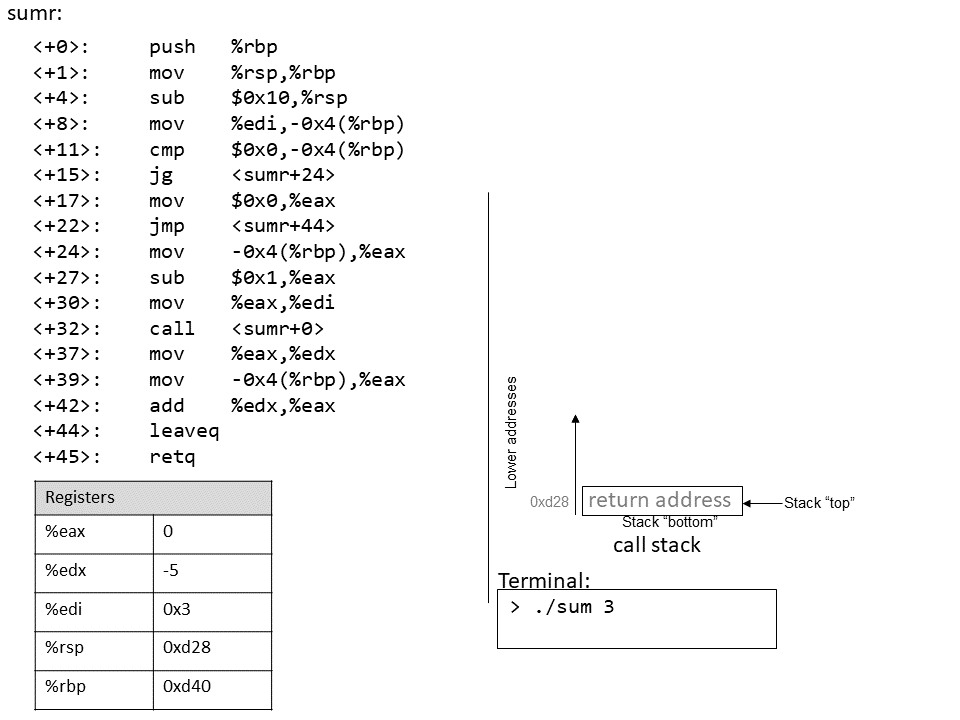7.6. Recursion
Recursive functions are a special class of functions that call themselves (also known as self-referential functions) to compute a value. Like their nonrecursive counterparts, recursive functions create new stack frames for each function call. Unlike standard functions, recursive functions contain function calls to themselves.
Let’s revisit the problem of summing up the set of positive integers from
1 to n. In previous sections, we discussed the sumUp
function to achieve this task. Table 1 shows a related function called
sumDown that adds the numbers in reverse (n to 1), and its
recursive equivalent sumr:
| Iterative | Recursive |
|---|---|
|
|
The base case in the recursive function sumr accounts for any values of n that are
less than one. The recursive step calls sumr with the value n-1 and adds the result to
n prior to returning. Compiling sumr
and disassembling it with GDB yields the following assembly code:
Dump of assembler code for function sumr: 0x400551 <+0>: push %rbp # save %rbp 0x400552 <+1>: mov %rsp,%rbp # update %rbp (new stack frame) 0x400555 <+4>: sub $0x10,%rsp # expand stack frame by 16 bytes 0x400559 <+8>: mov %edi,-0x4(%rbp) # move first param (n) to %rbp-0x4 0x40055c <+11>: cmp $0x0,-0x4(%rbp) # compare n to 0 0x400560 <+15>: jg 0x400569 <sumr+24> # if (n > 0) goto <sumr+24> [body] 0x400562 <+17>: mov $0x0,%eax # copy 0 to %eax 0x400567 <+22>: jmp 0x40057d <sumr+44> # goto <sumr+44> [done] 0x400569 <+24>: mov -0x4(%rbp),%eax # copy n to %eax (result = n) 0x40056c <+27>: sub $0x1,%eax # subtract 1 from %eax (result -= 1) 0x40056f <+30>: mov %eax,%edi # copy %eax to %edi 0x400571 <+32>: callq 0x400551 <sumr> # call sumr(result) 0x400576 <+37>: mov %eax,%edx # copy returned value to %edx 0x400578 <+39>: mov -0x4(%rbp),%eax # copy n to %eax 0x40057b <+42>: add %edx,%eax # add sumr(result) to n 0x40057d <+44>: leaveq # prepare to leave the function 0x40057e <+45>: retq # return result
Each line in the preceding assembly code is annotated with its English translation.
Table 2 shows the corresponding goto form and C program without
goto statements:
| C goto form | C version without goto statements |
|---|---|
|
|
Although this translation may not initially appear to be identical to the original sumr function, close inspection reveals that the two functions are indeed equivalent.
